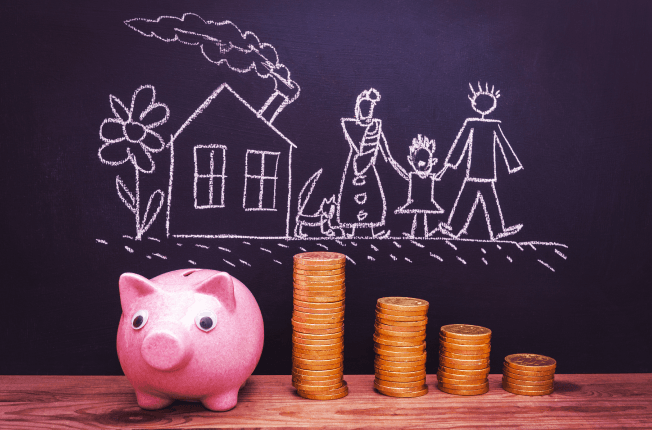
The family budget is an essential tool for maintaining a healthy economy and avoiding unnecessary expenses that can negatively affect a family's financial balance.
With a well-planned budget, you can set long-term financial goals and have effective control over household income and expenses.
What is a household budget and why is it important?
A household budget is a detailed plan that lists all of an individual's or family's monthly income and expenses.

It is important because it allows people to manage their money effectively and avoid long-term financial problems.
With a budget, people can identify where they are overspending and find ways to cut unnecessary expenses.
How to make a family budget?
To make a household budget, follow these steps:
- Record income: Write down all income the family receives, whether from wages, pensions, rents or any other source of income;
- List expenses: Make a detailed list of fixed and variable expenses, such as housing, food, transportation, leisure, among others;
- Determine priorities: Prioritize expenses according to their importance;
- Establish a spending limit: Define a maximum spending limit to avoid exceeding the available budget;
- Make regular adjustments: Review the budget periodically and make adjustments if necessary.
Making a family budget not only allows you to keep track of your finances but also to plan for the future and avoid unpleasant surprises. Discipline and commitment to budgeting are key to a healthy and stable economy.
How to maintain a healthy family budget?
To maintain a healthy family budget, it is essential to follow some key steps:
- Set short- and long-term financial goals;
- Develop a monthly budget and update it regularly;
- Reduce unnecessary expenses;
- Increasing income by pursuing new job opportunities or ventures;
- Consistently saving to prepare for emergencies and future needs.
It is also important to keep in mind that each family has its own financial needs and goals. Therefore, it is necessary to make adjustments and decisions according to each particular situation.

Maintaining a healthy budget not only brings short-term financial benefits but also improves the family's quality of life in the long run.
Review your budget regularly.
Once you have your family budget in place, it is important to review it regularly
At least once a month, check the previous month's expenses and compare them to your budget.
If you notice that you have spent more than planned in any category, try to adjust your spending in that area in the next month.
Adjust your budget according to your financial needs and goals
Once you are clear on how much money you need to cover your fixed expenses, it is important to adjust your budget according to your financial needs and goals.
This means identifying which expenses are truly important to you and which ones you can cut or postpone.
If you have debts, it is essential that you allocate a portion of your income to pay them off as soon as possible.
It is also advisable to set aside an amount for emergencies, since you never know when you might need extra money.

On the other hand, if you have long-term goals such as buying a house or saving for your children's education, you should include these expenses in your budget and allocate a portion of your income to them.
Adjusting your budget according to your financial goals will allow you to reach them more effectively.






